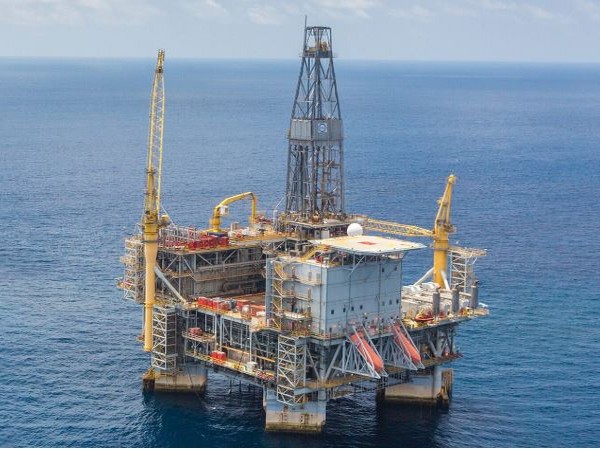Congo oil blocks auction draws warnings of environmental catastrophe
Licensing rights for 30 oil and gas blocks in the Democratic Republic of Congo will go up for auction on Thursday, opening parts of the world's second-biggest rainforest to drilling that could release large amounts of carbon into the atmosphere. The 500 million acre Congo Basin is a major carbon sink, trapping billions of tonnes of greenhouse gases.

- Country:
- Congo
Licensing rights for 30 oil and gas blocks in the Democratic Republic of Congo will go up for auction on Thursday, opening parts of the world's second-biggest rainforest to drilling that could release large amounts of carbon into the atmosphere.
The 500 million-acre Congo Basin is a major carbon sink, trapping billions of tonnes of greenhouse gases. Several of the proposed oil blocks overlap with peatlands, swampy areas that prevent plant material from fully decomposing. Simon Lewis, a leading researcher on Congo's peatlands, estimated this month that drilling in these areas could release up to 5.8 billion tonnes of carbon, more than 14% of the world's total greenhouse gas emissions in 2021.
"In a zone where there are peatlands, any industrial exploitation means the explosion of a carbon bomb," said Irène Wabiwa Betoko, who leads Greenpeace's Congo Basin project. "We will have a terrible environmental catastrophe that no one can repair."
Two of the other oil blocks overlap with Virunga National Park, a sanctuary for endangered mountain gorillas on the borders of Rwanda and Uganda. Congo's government says it will hold oil developers to high environmental standards to minimize impacts but says its priority is accessing revenues that can be used to improve living standards in one of the world's poorest countries.
It has alleged hypocrisy in the way governments and organizations from richer countries that powered their development with fossil fuels have urged developing world countries to forego the same path. "We are not going to follow the diktats of an NGO," Hydrocarbons Minister Didier Budimbu told reporters on Tuesday, referring to Greenpeace, its most persistent critic. "We are going to do what is right for our population."
COMBINATION OF RISKS Asked whether Congo might back down in exchange for compensation from richer countries, presidential adviser Tosi Mpanu-Mpanu was skeptical.
He cited the example of Ecuador, which requested $3.6 billion in 2007 to offset revenue lost by not drilling in its Yasuni National Park. The initiative was scrapped in 2013 after it brought in less than 4% of the requested amount. Drilling began three years later. In addition to 27 oil blocks, the rights to extract methane gas from three blocks in Lake Kivu will be up for auction.
Government officials have declined to say who has expressed interest in the blocks. Vincent Rouget, the Africa director at Control Risks, a London-based consultancy, said Congo's government was hoping to take advantage of high oil prices and fresh Western interest in alternatives to Russian fuel.
"But the combination of environmental risks, regulatory uncertainty in the sector, the huge logistical challenges of highly-remote exploration, and on top of it all Congo's higher political risk premium, will likely make many majors unwilling to commit," Rouget said. Previous efforts by Congolese governments to boost output beyond the roughly 25,000 barrels per day it has long produced along its Atlantic coast have run into these same challenges.
President Felix Tshisekedi's administration is vowing this time will be different and is targeting the production of 200,000 barrels per day. Even if the investment does pour in, critics say there is no guarantee it will benefit the Congolese people.
Congo is already a mining powerhouse, producing large amounts of copper, cobalt, gold, and diamonds, yet it remains deeply impoverished, due largely to corruption and misgovernance. Two of the blocks on auction near Lake Albert in the east were stripped from Israeli investor Dan Gertler last year. Gertler is under U.S. sanctions for alleged corruption in Congo's mining sector. He denies any wrongdoing.
(This story has not been edited by Devdiscourse staff and is auto-generated from a syndicated feed.)
ALSO READ
Israeli explanation for aid workers deaths 'not good enough', Australia PM says
Volker Türk urges Uganda to repeal discriminatory anti-gay law
Israeli military halts leave for all combat units - statement
Israeli military halts leave for all combat units - statement
UK judges, intelligence experts call for halt to Israeli arms sales










